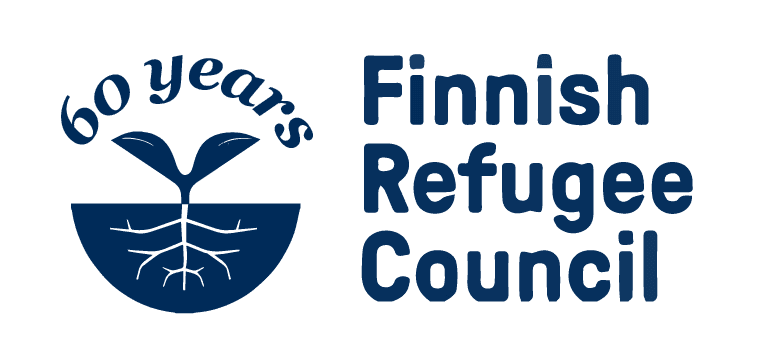Every day a quarter of a million women humanitarians improve the lives of victims of conflicts and disasters. The courage it takes to work with war and disaster is beyond what most of us can imagine and being a woman can make it even more difficult. We met Everlyne Kabasita to discuss why she became one of the few female fieldworkers in Uganda.
For World Humanitarian Day this year, the United Nations honours the work of women throughout the world. Everlyne Kabasita has worked for the Finnish Refugee Council for almost 9 years in Uganda. Everlyne says that being a woman in the field is not always easy, but it is very rewarding. Her work fills her with a sense of pride and strength.
“As a woman I feel excited to be part of the field team that directly interacts with refugees and women. I am proud to be a changemaker in the lives of these community members that I interact with daily, seeing them change the situation they are in,” she says.
Uganda has received over 1.3 million refugees and is the number one refugee-hosting country in Africa. In practice this means that there is a constant demand for the FRC’s work. As it is mainly men that participate in the neighbouring conflicts in the Democratic Republic of Congo and South Sudan, most refugees coming to Uganda are women. As a woman, Everlyne can reach and support them in ways a male worker never could.
“I have worked with many of the women for a long time and managed to gain their trust. I have supported women i.e. by convincing their husbands to let them participate in education or by helping them start small businesses. Some of the women even lean on me for psychological support, as they feel more comfortable sharing their life stories with another woman,” she says.
Everlyne says that having mixed-gender teams also makes conducting community mobilisation and sensitisation activities easier. It is important to show the community that the FRC programmes are equally accessible to all –regardless of their gender.
“Seeing the female staff also shows women that a woman can be strong and independent. We often become role models and motivate women to study and learn.”
Balancing work and family
One of the most common challenges female aid workers face is balancing work and family life. In most refugee-receiving countries, an employed woman is still expected to fulfill her duties as a mother and wife. Everlyne says this is one of the biggest challenges she has faced.
“Motherhood is more demanding than fatherhood over here. If one of my children becomes sick, I might have to run home to care for them. There are no such expectations for men – in Africa and especially in Uganda, children are a woman’s responsibility.”
On the other hand, the work makes Everlyne feel more useful for her family.
“The fact that I am not at home with my family full-time has enabled me to support my family financially. Because of my work, I can pay the tuition fees for my child and support my other family members.”
According to Everlyne the pros with fieldwork outweigh the cons. As a fieldworker she has gained skills that other women do not have, like riding a motorcycle. In Uganda, a motorcycle makes it much easier to move around and access more remote places. The skill has even earned Everlyne a new nickname – the “senior female rider” at the FRC.
Everlyne hopes more women will be interested in fieldwork in the future. Even though it can be tough, it is also incredibly rewarding to see the change and the results of the work.
“I love supporting refugees and women. This job has earned me respect and affection from the community as one of the only long serving female staff. The work is incredibly important, and we need female staff in order to achieve our goals. I hope to see whole groups of ‘female riders’ in the future.”


